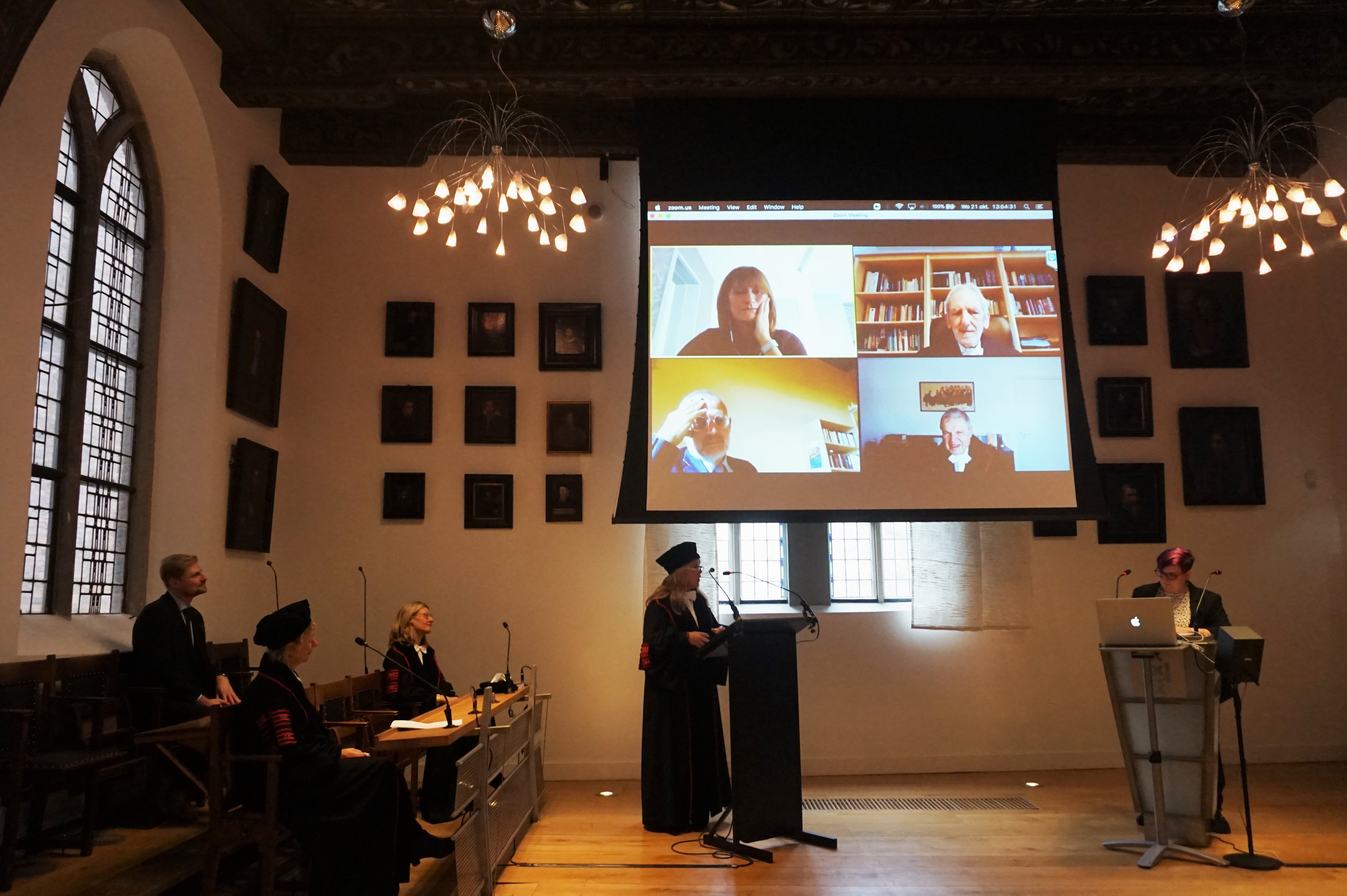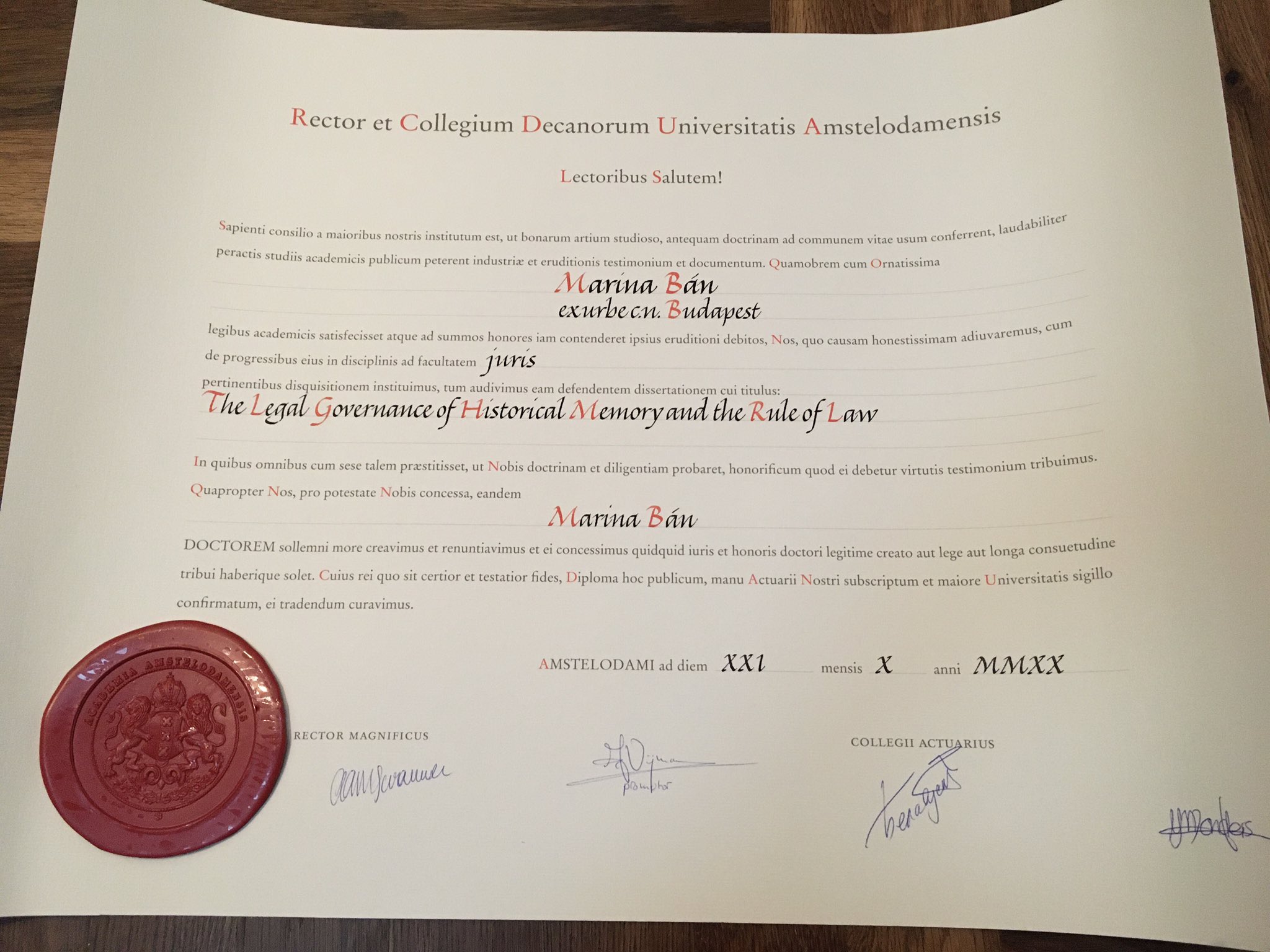On 21 October 2020, Marina Bán, a MELA PhD researcher from the Netherlands team, successfully defended her doctoral thesis entitled ‘The Legal Governance of Historical Memory and the Rule of Law.'
The thesis examines treatment of their past in Hungary and France and evaluates how governmental control over historical memory via legal measures affects the rule of law. Hired as a PhD researcher within the MELA Project in 2016, Marina’s interest in memory governance and law emerged from witnessing the relationship between historical revisionism and rule of law backsliding first-hand in Hungary.
Traditionally, scholarship on memory governance has employed the fundamental rights lens, and evaluated the implications on individual rights. Marina’s research, on the contrary, innovatively demonstrates how state-based instrumentalizations of history through law and legal measures have an impact on the rule of law. Utilising Hungary and France as case studies, the research evaluates the approaches to history taken by states in Europe: such as the self-inculpation approach, which has been perceived as embracing accountability and the rights of victims, whereas the self-exculpation approach has become synonymous with historical selectivity and arbitrariness. After extensive examination of each country study, the thesis determines that the binary approach to understanding the self-inculpatory and self-exculpatory approaches is insufficient to capture the full spectrum of the effects of memory laws. The country studies demonstrate how over-reliance on the self-inculpatory approach may result in harmful consequences for the rule of law. Moreover, although self-exculpation is often present and damaging, such an approach is not exclusively harmful to the rule of law.
This pioneering research builds upon the work of the MELA Project. Marina’s thesis contributes to MELA’s inter-disciplinary analysis of European memory governance. It expands the focus from fundamental rights such as democratic freedoms of expression, association, the media, or scholarly research to include the rule of law. Moreover, the MELA Project offered Marina a network of four leading research institutions in the Netherlands, Italy, Poland, and the UK, and enabled multiple research trips to Europe and the USA, which allowed for fruitful exchanges with major scholars in the field of memory laws and governance. Such activities would not have been possible if not for the EU fund, HERA, “Humanities in the European Research Area”.
The dissertation was supervised by Prof. Janne Nijman, the Academic Director of the Asser Institute and Professor of Law at the University of Amsterdam, and Dr. Uladzislau Belavusau, the Principal Investigator in the Dutch MELA team and a senior researcher in European law at the Asser Institute. The members of Marina Bán's defence jury included: Prof. Antoon de Baets (Groningen University), Prof. Yvonne Donders (University of Amsterdam), Prof. Gábor Halmai (European University Institute), Prof. Ernst Hirsch Ballin (University of Amsterdam), and Dr. Nevenka Tromp (University of Amsterdam).
After the completion of her PhD, Marina has started working as a postdoctoral researcher at the University of Copenhagen investigating constitutional imaginaries behind the European integration project at both national and the EU level.


